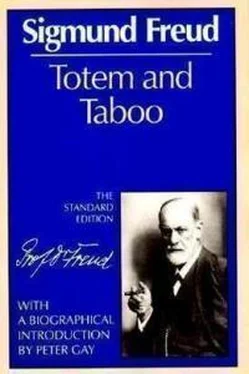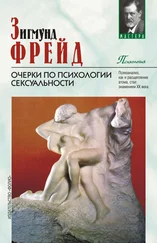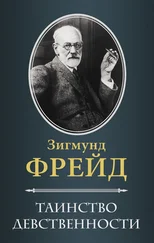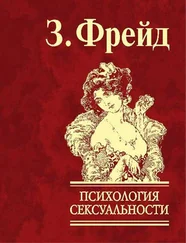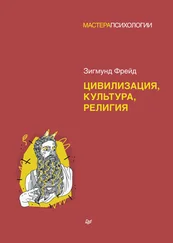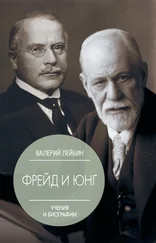Зигмунд Фрейд - Totem and Taboo
Здесь есть возможность читать онлайн «Зигмунд Фрейд - Totem and Taboo» весь текст электронной книги совершенно бесплатно (целиком полную версию без сокращений). В некоторых случаях можно слушать аудио, скачать через торрент в формате fb2 и присутствует краткое содержание. Год выпуска: 2014, Издательство: epubBooks Classics, Жанр: Психология, на английском языке. Описание произведения, (предисловие) а так же отзывы посетителей доступны на портале библиотеки ЛибКат.
- Название:Totem and Taboo
- Автор:
- Издательство:epubBooks Classics
- Жанр:
- Год:2014
- ISBN:нет данных
- Рейтинг книги:3 / 5. Голосов: 1
-
Избранное:Добавить в избранное
- Отзывы:
-
Ваша оценка:
- 60
- 1
- 2
- 3
- 4
- 5
Totem and Taboo: краткое содержание, описание и аннотация
Предлагаем к чтению аннотацию, описание, краткое содержание или предисловие (зависит от того, что написал сам автор книги «Totem and Taboo»). Если вы не нашли необходимую информацию о книге — напишите в комментариях, мы постараемся отыскать её.
Totem and Taboo — читать онлайн бесплатно полную книгу (весь текст) целиком
Ниже представлен текст книги, разбитый по страницам. Система сохранения места последней прочитанной страницы, позволяет с удобством читать онлайн бесплатно книгу «Totem and Taboo», без необходимости каждый раз заново искать на чём Вы остановились. Поставьте закладку, и сможете в любой момент перейти на страницу, на которой закончили чтение.
Интервал:
Закладка:
Similar customs are found among the Palu in Celebes; the Gallas sacrifice to the spirits of their dead enemies before they return to their home villages [47] Paulitschke, Ethnography of North–east Africa .
.
Other races have found methods of making friends, guardians and protectors out of their former enemies after they are dead. This consists in the tender treatment of the severed heads, of which many wild tribes of Borneo boast. When the See–Dayaks of Sarawak bring home a head from a war expedition, they treat it for months with the greatest kindness and courtesy and address it with the most endearing names in their language. The best morsels from their meals are put into its mouth, together with titbits and cigars. The dead enemy is repeatedly entreated to hate his former friends and to bestow his love upon his new hosts because he has now become one of them. It would be a great mistake to think that any derision is attached to this treatment, horrible though it may seem to us [48] Frazer, Adonis, Attis, Osiris , p. 248, 1907. According to Hugh Low, Sarawak (London, 1848).
.
Observers have been struck by the mourning for the enemy after he is slain and scalped, among several of the wild tribe of North America. When a Choctaw had killed an enemy he began a month’s mourning during which he submitted himself to serious restrictions. The Dakota Indians mourned in the same way. One authority mentions that the Osaga Indians after mourning for their own dead mourned for their foes as if they had been friends [49] J. O. Dorsay, see Frazer, Taboo , etc., p. 181.
.
Before proceeding to the other classes of taboo customs for the treatment of enemies, we must define our position in regard to a pertinent objection. Both Frazer as well as other authorities may well be quoted against us to show that the motive for these rules of reconciliation is quite simple and has nothing to do with ‘ambivalence.’ These races are dominated by a superstitious fear of the spirits of the slain, a fear which was also familiar to classical antiquity, and which the great British dramatist brought upon the stage in the hallucinations of Macbeth and Richard the Third. From this superstition all the reconciliation rules as well as the restrictions and expiations which we shall discuss later can be logically deduced; moreover, the ceremonies included in the fourth group also argue for this interpretation, since the only explanation of which they admit is the effort to drive away the spirits of the slain which pursue the manslayers [50] Frazer, Taboo , pp. 166–174. These ceremonies consist of hitting shields, shouting, bellowing and making noises with various instruments, etc.
. Besides, the savages themselves directly admit their fear for the spirits of their slain foes and trace back the taboo customs under discussion to this fear.
This objection is certainly pertinent and if it were adequate as well we would gladly spare ourselves the trouble of our attempt to find a further explanation. We postpone the consideration of this objection until later and for the present merely contrast it to the interpretation derived from our previous discussion of taboo. All these rules of taboo lead us to conclude that other impulses besides those that are merely hostile find expression in the behaviour towards enemies. We see in them manifestations of repentance, of regard for the enemy, and of a bad conscience for having slain him. It seems that the commandment, Thou shalt not slay, which could not be violated without punishment, existed also among these savages, long before any legislation was received from the hands of a god.
We now return to the remaining classes of taboo rules. The restrictions laid upon the victorious manslayer are unusually frequent and are mostly of a serious nature. In Timor (compare the reconciliation customs mentioned above) the leader of the expedition cannot return to his house under any circumstances. A special hut is erected for him in which he spends two months engaged in the observance of various rules of purification. During this period he may not see his wife or nourish himself; another person must put his food in his mouth. [51] Frazer, Taboo , p. 166, according to S. Mueller, Reisen en Onderzoekingen in den Indischen Archipel . (Amsterdam, 1857).
Among some Dayak tribes warriors returning from a successful expedition must remain sequestered for several days and abstain from certain foods; they may not touch iron and must remain away from their wives. In Logea, an island near New Guinea, men who have killed an enemy or have taken part in the killing, lock themselves up in their houses for a week. They avoid every intercourse with their wives and friends, they do not touch their victuals with their hands and live on nothing but vegetable foods which are cooked for them in special dishes. As a reason for this last restriction it is alleged that they must smell the blood of the slain, otherwise they would sicken and die. Among the Toaripi–or Motumotu–tribes in New Guinea a manslayer must not approach his wife and must not touch his food with his fingers. A second person must feed him with special food. This continues until the next new moon.
I avoid the complete enumeration of all the cases of restrictions of the victorious slayer mentioned by Frazer, and emphasize only such cases in which the character of taboo is especially noticeable or where the restriction appears in connection with expiation, purification and ceremonial.
Among the Monumbos in German New Guinea a man who has killed an enemy in combat becomes ‘unclean’, the same word being employed which is applied to women during menstruation or confinement. For a considerable period he is not allowed to leave the men’s club–house, while the inhabitants of his village gather about him and celebrate his victory with songs and dances. He must not touch any one, not even his wife and children; if he did so they would be afflicted with boils. He finally becomes clean through washing and other ceremonies.
Among the Natchez in North America young warriors who had procured their first scalp were bound for six months to the observance of certain renunciations. They were not allowed to sleep with their wives or to eat meat, and received only fish and maize pudding as nourishment. When a Choctaw had killed and scalped an enemy he began a period of mourning for one month, during which he was not allowed to comb his hair. When his head itched he was not allowed to scratch it with his hand but used a small stick for this purpose.
After a Pima Indian had killed an Apache he had to submit himself to severe ceremonies of purification and expiation. During a fasting period of sixteen days he was not allowed to touch meat or salt, to look at a fire or to speak to any one. He lived alone in the woods, where he was waited upon by an old woman who brought him a small allowance of food; he often bathed in the nearest river, and carried a lump of clay on his head as a sign of mourning. On the seventeenth day there took place a public ceremony through which he and his weapons were solemnly purified. As the Pima Indians took the manslayer taboo much more seriously than their enemies and, unlike them, did not postpone expiation and purification until the end of the expedition, their prowess in war suffered very much through their moral severity or what might be called their piety. In spite of their extraordinary bravery they proved to be unsatisfactory allies to the Americans in their wars against the Apaches.
The detail and variations of these expiatory and purifying ceremonies after the killing of an enemy would be most interesting for purposes of a more searching study, but I need not enumerate any more of them here because they cannot furnish us with any new points of view. I might mention that the temporary or permanent isolation of the professional executioner, which was maintained up to our time, is a case in point. The position of the ‘free–holder’ in mediæval society really conveys a good idea of the ‘taboo’ of savages [52] For these examples see Frazer, Taboo , p. 165–170, “Manslayers Tabooed.”
.
Интервал:
Закладка:
Похожие книги на «Totem and Taboo»
Представляем Вашему вниманию похожие книги на «Totem and Taboo» списком для выбора. Мы отобрали схожую по названию и смыслу литературу в надежде предоставить читателям больше вариантов отыскать новые, интересные, ещё непрочитанные произведения.
Обсуждение, отзывы о книге «Totem and Taboo» и просто собственные мнения читателей. Оставьте ваши комментарии, напишите, что Вы думаете о произведении, его смысле или главных героях. Укажите что конкретно понравилось, а что нет, и почему Вы так считаете.
